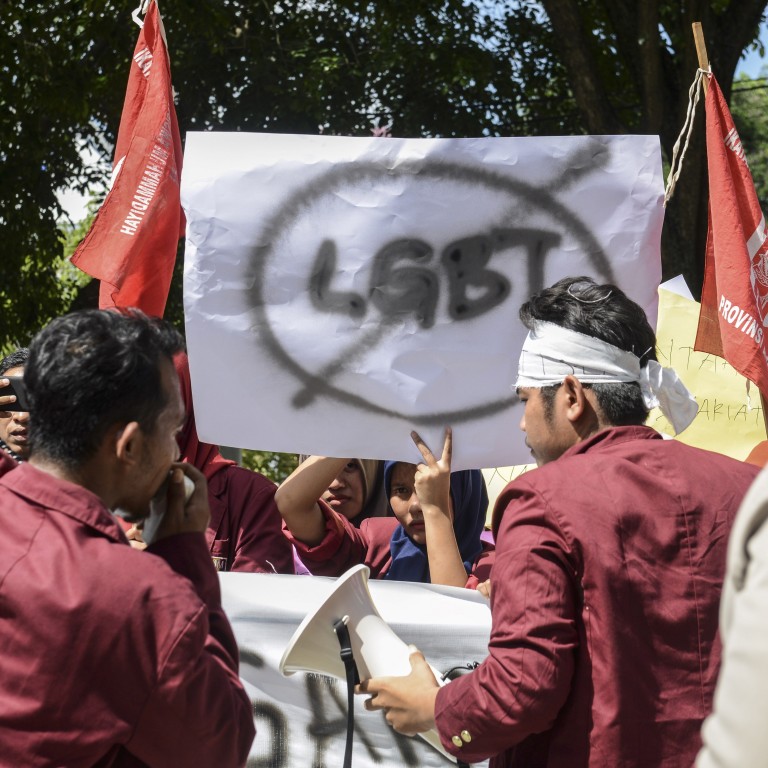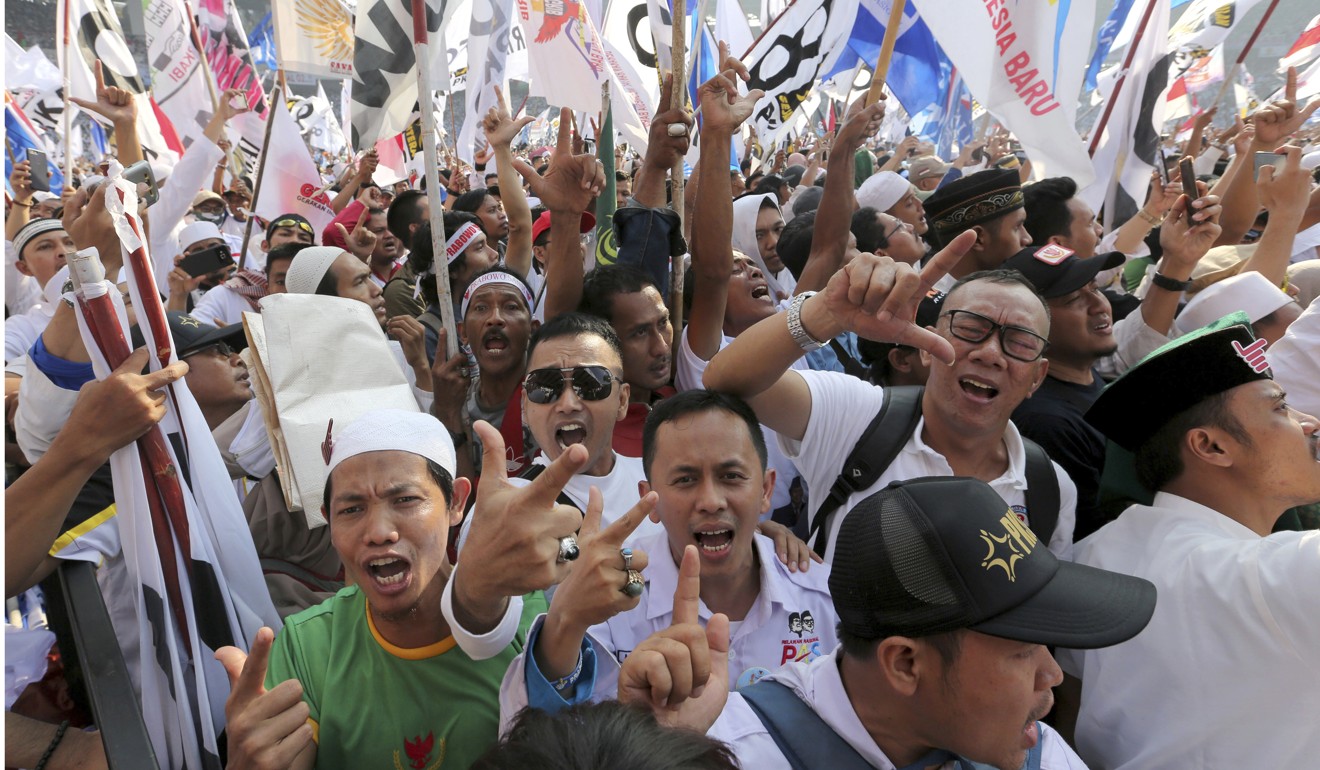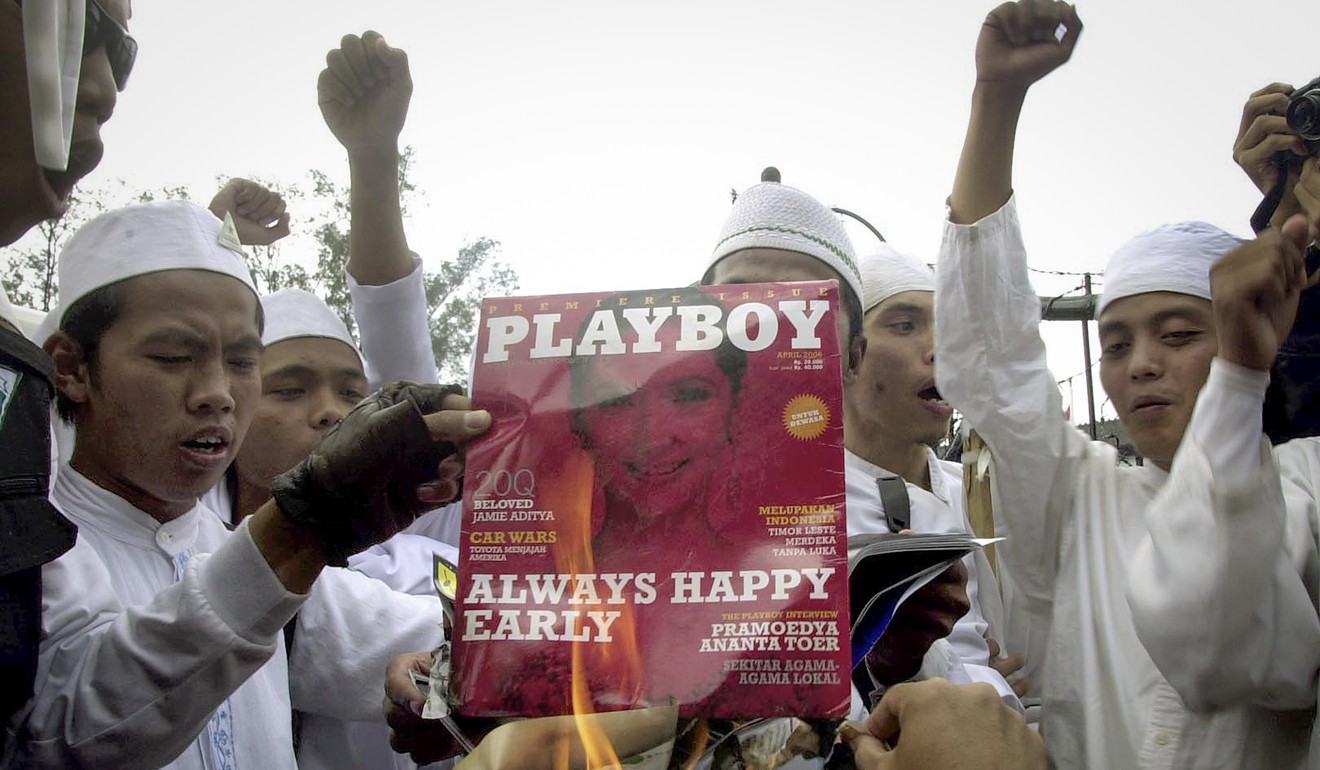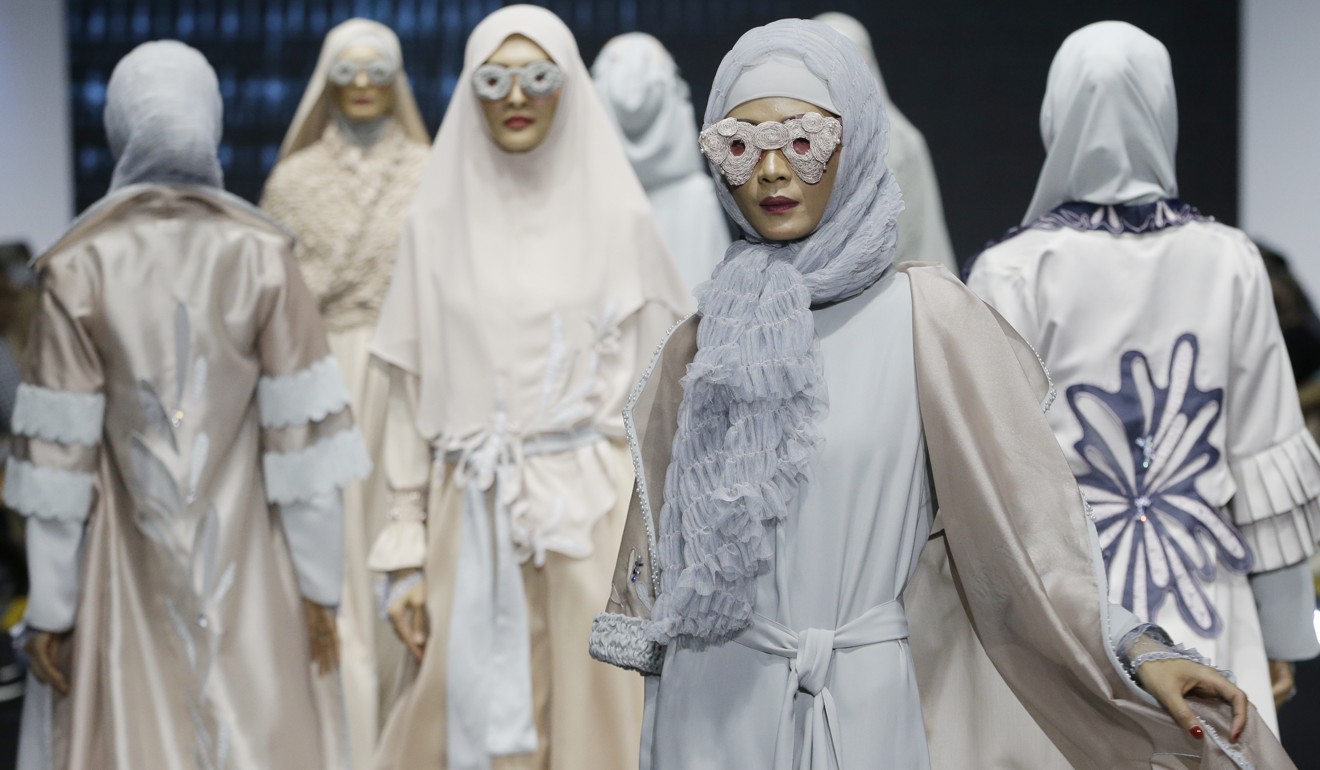
Dancers being attacked by an angry mob? Just the latest sign of rising anti-LGBT sentiment in Indonesia
- The perpetrators, members of a Malay youth paramilitary organisation, justified their actions by claiming the dance was ‘vulgar’
- Other recent instances of homophobia include the banning of a film for promoting LGBT ‘ideology’ and an attack on an HIV prevention organisation
The attackers were members of the local branch of Laskar Pemuda Melayu (Malay Youth Paramilitary), who claimed the dance was too vulgar to be displayed in public and the event promoted LGBT lifestyles. They also said that the wearing of tight shirts by male dancers from Tanjungpura University who were “dancing femininely” was not compatible with Indonesian culture.

In the video, a dozen men can be seen beating the group of dancers before being dispersed by the police. Claims that officers were dispatched by the mayor’s office were dismissed by Kamtono, who said there had been a miscommunication between the event’s organiser and the police.
The violence was apparently sparked by an earlier social media video that was just seven seconds long, which accused the event of promoting LGBT lifestyles.
In Indonesia, LGBT communities viewed as a moral threat
Nursalih Yadi Anugerah, co-organiser of the event, described the use of “mobilised masses” and the police as a “barbaric gesture and form of tyranny”.
Dede Oetomo, founder of Gaya Nusantara, an organisation working for LGBT rights, said the violence showed “the state’s failure to protect its citizens”.
“At the same time, those who want to impose their own beliefs and values upon others with force are left to do so,” Dede said.
Anti-gay sentiment in Indonesia also led to a ban on public screenings of the film Kucumbu Indah Body (Memories of My Body), on the grounds that it promoted LGBT “ideology”. The film’s director, Garin Nugroho, said the ban reflected a rising tide of anti-gay sentiment within the country.
“All over the world, there is a rise of extreme politics of identity in religions,” Garin said. “It leads to feelings of being threatened within the state and … censorship without prior study and logical thoughts.”
The growing influence of Islamist hardliners has also contributed to an increasingly strident form of anti-LGBT sentiment in Indonesia.
In Indonesia, the genie of hardline Islamism has been let out of the bottle
Last week, the country’s top Muslim clerical body, the Indonesian Ulama Council, said the ban on Kucumbu Indah Body was justified, as screening it would negatively affect young people. Its regional branches likewise publicised their support of the ban.
The council, which is led by Ma’ruf Amin, Joko Widodo’s running mate, has been at the forefront of rising populism and identity politics in Indonesia, alongside other groups such as the Islamic Defenders Front and Forum of Indonesian Muslims.
Both of the latter organisations have strongly advocated against LGBT people in the past, with the Islamic Defenders Front raiding the offices of an HIV prevention group in Pekanbaru in January on suspicion of it carrying out LGBT activities.

“Islamist organisations were deeply unhappy. They argued that only a Muslim could govern other Muslims,” said Wahyudi Akmaliah, a researcher from Indonesian Institute of Sciences.
Ex-Jakarta governor Ahok: out of jail … and into arms of ex-wife’s bodyguard
Aquino Hayunta, from the Indonesia Art Coalition, said the mix of religious conservatism and populist politics has contributed to an atmosphere of censorship, which has intensified “since the 2017 Jakarta gubernatorial election and occupied the centre of the nation politics during the recently held presidential election”.
“We’ve witnessed the rise of populism with religious identity as its backbone,” he said. “At the same time, our standards of democracy are decreasing, leading to persecutions against freedom of expression.”
In May 2017, police in Jakarta raided a gym and sauna and arrested 141 people, most of whom were gay or bisexual men, with 10 of them later being prosecuted under Indonesia’s pornography law.

There were at least six similar raids on private spaces in 2017 with more than 300 LGBT people being detained. According to a Human Rights Watch report, the pattern of these raids suggested a “systematic crackdown” on LGBT rights.
Restrictions on the activities of LGBT groups have also recently been imposed in various regions. According to the Indonesia Family Planning Association, at least 22 city or regional regulations target LGBT communities, classifying them as a “social disease”. Another 45 similar regulations indirectly address LGBT communities, designed to prevent the spread of “LGBT ideology”.
Munarman, general secretary of the Islamic Defenders Front, denied LGBT communities were being persecuted. Rather, he insisted the regulations reflected the popular will to preserve religious and moral values.
“We are not dehumanising the LGBT,” Munarman said. “But what happened shows that being gay or lesbian is not part of our culture, against our religious values and making other people uncomfortable. They know that Indonesia is different from Western countries, so they should obey our Eastern values.”
